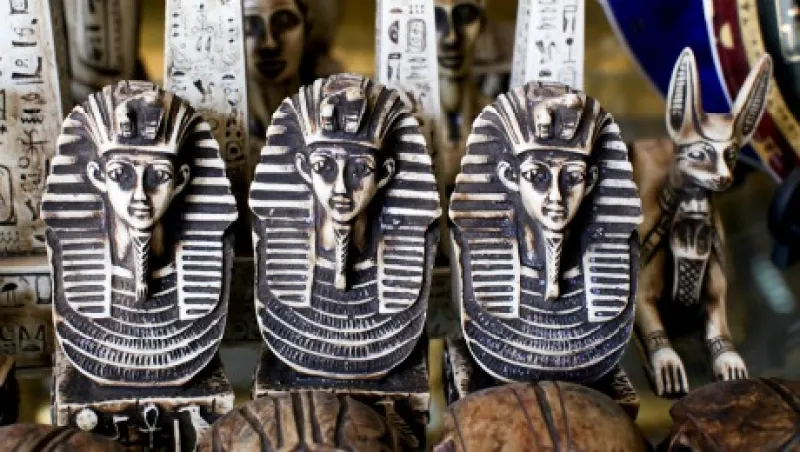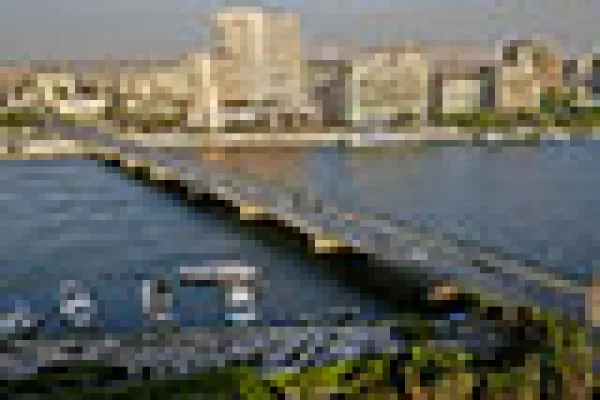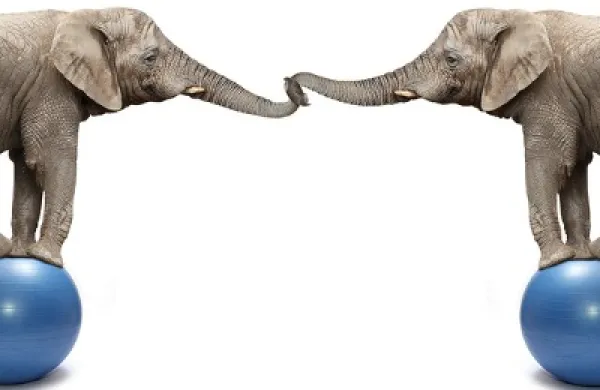From his office at the headquarters of the Commercial International Bank, Hisham Ezz el-Arab has a view onto Giza Zoo and beyond that, the Nile River, which cuts through Cairo’s ancient center. “I can see the giraffes from my window,” says el-Arab, chairman and managing director of Egypt’s largest private sector bank. “They’re still there. They’ve been there for a while, and I imagine they’ll be there for a while to come.”
As the most populous nation in the Arab world goes to the polls today and tomorrow to elect a new president, the local business elite is cautiously optimistic that the chaos that has engulfed Egypt in the three years since the downfall of president Hosni Mubarak is nearing an end. But there is still great uncertainty about the likely policy direction of a new government under Abdel Fattah el-Sisi, the army general widely favored to win the election.
“For a majority of Egyptians, things are more stable, and the outlook is more positive than a few years ago,” asserts Hisham el-Khazindar, co-founder and managing director of Citadel Capital, a Cairo-based investment firm with $9.5 billion in assets under management. He cites the successful referendum in January to approve a new constitution as an important turning point in ushering in a new, more stable and liberal order in Egypt. The new constitution was put to a popular vote by the interim administration that took over following the military’s ouster of President Mohamed Morsi last July. It strips out much of the harsh Islamist language that incited popular anger against Morsi’s Muslim Brotherhood government and puts more power in the hands of the military, police and the judiciary.
Critics say that with the authority of the police and the military enhanced, the institutional framework is in place for Egypt to revert to bad habits: authoritarianism, the militarization of power and the strongman complex that has bedeviled the nation since the rise of Gamal Abdel Nasser and the inception of the Egyptian Republic in 1953. El-Sisi, who is facing off in this week’s poll against longtime opposition leader, journalist and poet Hamdeen Sabahi, has done little to allay these fears. El-Sisi supports the crackdown on the Muslim Brotherhood, 683 of whose supporters were sentenced to death in April. In his rare public appearances, the onetime Egyptian commander-in-chief has made his contempt for democracy abundantly clear. “The strategic goal is preserving the Egyptian state,” el-Sisi, who once ran the military intelligence service, told local journalists earlier this month, adding that if the new government places too great an emphasis on democratization, “we won’t find a nation.”
That view that doesn’t seem to faze many in the Egyptian business community, which has on the whole supported the rise of el-Sisi as welcome relief after the mass protests and trauma of the Morsi era. “The country needs a strong leader with a vision,” says el-Arab. “Egypt is not ready for populist decisions anymore — economic decisions are tough ones.”
The stagnation of tourism and investment inflows, coupled with a fiscal deficit that the Ministry of Finance says could touch $44 billion this year, roughly equivalent to 15 percent of gross domestic product, means that Egypt’s economy is under severe strain. Aid from other Arab nations, especially the United Arab Emirates and Saudi Arabia, has kept the country afloat until now, but last October, Sheikh Mansour bin Zayed Al Nahyan, the deputy prime minister of the U.A.E. and owner of U.K. soccer team Manchester City, warned that “Arab support for Egypt will not last long” and pressed the country to “think about innovative, unconventional solutions.”
For many investors, the most pressing issue is to reform Egypt’s bloated energy sector. Cheap, subsidized energy has been a way of life in Egypt for decades, a binding element of the social contract that successive governments have left unchanged even as the dynamics of the economy have shifted. Maintaining the energy subsidy amid a steep drop in tourism and investment inflows has caused the budget deficit to balloon, with rolling blackouts and fuel shortages now a feature of daily Egyptian life. “Costs have gone up, margins have fallen, and corporate Egypt is suffering,” says el-Arab. The principal inequality of the subsidy is that those who benefit from it are the upper and middle classes, he adds. “I am paying subsidized prices; that’s a crime.”
Removing the subsidy and liberalizing energy prices will, the country’s business community hopes, allow the government to balance the budget and devote more money to health, education and the institution of a proper welfare system. With balance restored to the country’s energy market, power should return to full capacity, and industry will receive a lift. “This is not about new investments; it’s about restarting existing capacity,” argues el-Khazindar of Citadel Capital. Local demand for cement, to take one example, is strong, but with cement plants blackout-constrained and operating at half-capacity, Egypt now imports clinker to produce cement, he adds. “It’s an absurd situation.”
Whether el-Sisi has the stomach to follow through on this reform agenda is not clear; his pronouncements on economic policy and structural reform to date have been thin to the point of invisibility. “There’s no explicit commitment,” concedes el-Khazindar. “But there’s an understanding of the issues.” Look for public evidence of that understanding, and you’ll likely be disappointed; el-Sisi has spent most of the campaign locked in a hotel in Cairo, rarely talking to the media and never venturing out in public to campaign. If, as is expected, he this week makes the short journey from recumbent to incumbent, and if he then implements a robust reform agenda, “Egypt will come back a lot faster than people think,” el-Khazindar predicts. But, he adds, if el-Sisi avoids the tough task of reform and allows the country to continue to coast along at the largesse of its donor neighbors, higher inflation, slower growth and a deterioration in the fiscal deficit and foreign exchange reserves all beckon. As el-Khazindar says, “There are no guarantees.”
Follow Aaron Timms on Twitter at @aarontimms.
Get more on emerging markets.







